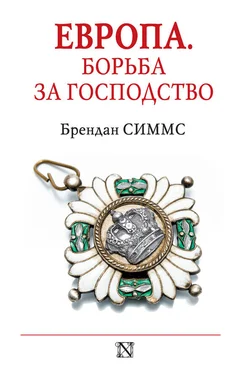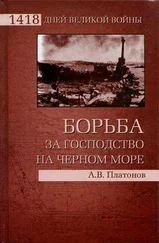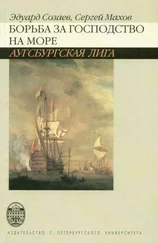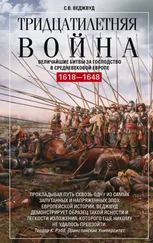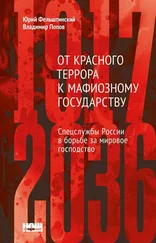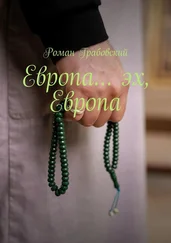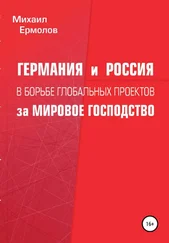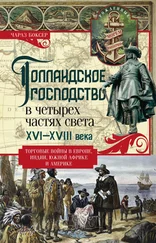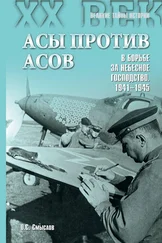McMeekin, The Russian origins of the First World War, p. 92.
A. L. Macfie, ‘The Straits Question in the First World War, 1914–18’, Middle Eastern Studies, 19,1 (1983), pp. 43–74 (quotations pp. 50 and 58).
William Mulligan, The origins of the First World War (Cambridge, 2010), pp. 181–4.
Taylor, Struggle for mastery in Europe, p. xxv.
J. W. B. Merewether and Frederick Smith, The Indian Corps in France (London, 1917), pp. 1–20. Я признателен Тараку Баркави за это указание.
Hew Strachan, The First World War. Vol. I: To arms (Oxford, 2001).
Robert T. Foley, German strategy and the path to Verdun: Erich von Falkenhayn and the development of attrition, 1870–1916 (Cambridge, 2005).
Elizabeth Peden, Victory through coalition. Britain and France during the First World War (Cambridge, 2005).
A. L. Mac, e, ‘The Straits Question in the First World War, 1914–18’, Middle Eastern Studies, 19, 1 (1983), pp. 43–74, and Graham T. Clews, The real story behind the origins of the 1915 Dardanelles campaign (Santa Barbara, 2010), pp. 66–7 and 293–4.
Robert A. Doughty, Pyrrhic victory. French strategy and operations in the Great War (Cambridge, Mass., 2006), pp. 2, 109, 169–71 and passim.
William Philpott, Bloody victory. The sacrifice on the Somme (London, 2009), pp. 96–7, 624–9 and passim (Joffre is quoted on p. 96).
Donald McKale, War by revolution. Germany and Great Britain in the Middle East in World War I (Kent, Ohio, 1998), pp. 46–68 (quotation p. 48). See also Sean McMeekin, The Berlin – Baghdad Express. The Ottoman Empire and Germany’s bid for world power, 1898–1918 (London, 2010).
«Германия превыше Аллаха» ( нем .) . Примеч. ред.
Kris Manjapra, ‘The illusions of encounter: Muslim “minds” and Hindu revolutionaries in First World War Germany and after’, Journal of Global History, 1 (2006), pp. 363–82, especially pp. 372–7.
Mark von Hagen, War in a European borderland. Occupations and occupation plans in Galicia and Ukraine, 1914–1918 (Seattle and London, 2007).
Hildebrand, Das vergangene Reich, p. 359.
Friedrich Katz, The life and times of Pancho Villa (Stanford, 1998), pp. 554–5 (quotation p. 555).
Hugh and Christopher Seton-Watson, The making of a new Europe. R. W. Seton-Watson and the last years of Austria-Hungary (London, 1981).
Branka Magaš, Croatia through history (London, 2008), p. 462.
Точнее «шариф», титул главы Мекканского шарифата, хранителя священных городов Мекка и Медина . Примеч. ред.
Matthew S. Seligmann, ‘Germany and the origins of the First World War in the eyes of the American diplomatic establishment’, German History, 15, 3 (1997), pp. 307–32, especially pp. 312, 315 and 323.
Martin Horn, Britain, France and the nancing of the First World War (Montreal and Kingston, 2002), pp. 142–65.
Nancy Mitchell, The danger of dreams. German and American imperialism in Latin America (Chapel Hill and London, 1999), p. 1.
Katz, Secret war in Mexico, p. 302.
Frank McDonough, The Conservative Party and Anglo-German relations, 1905–1914 (Basingstoke, 2007), p. 143.
Paul Bridgen, The Labour Party and the politics of war and peace, 1900–1924 (Woodbridge, 2009), p. 51.
«Священный союз» ( фр .) Примеч. ред.
John Turner, British politics and the Great War. Coalition and con ict, 1915–1918 (New Haven and London, 1992).
Alistair Horne, The French army in politics (London, 1984), p. 39.
Keith Robbins, ‘The Welsh Wizard who won the war: David Lloyd George as war leader’, in Brendan Simms and Karina Urbach (eds.), Die Rückkehr der ‘Grossen Männer’. Staatsmänner im Kriegein deutschbritischer Vergleich 1740–1945 (Berlin and New York, 2010), pp. 96–107, especially p. 105.
Axel Jansen, ‘Heroes or citizens? The 1916 debate on Harvard volunteers in the “European War”’, in Christine G. Krüger and Sonja Levsen (eds.), War volunteering in modern times. From the French Revolution to the Second World War (Basingstoke, 2011), pp. 150–62.
Peter Holquist, Making war, forging revolution: Russia’s continuum of crisis, 1914–1921 (Cambridge, Mass., 2002), pp. 18–19 and 38–9 (о стремлении подражать немцам).
Alexander Watson, ‘Voluntary enlistment in the Great War: a European phenomenon?’, in Krüger and Levsen (eds.), War volunteering in modern times, pp. 163–88.
Matthew Johnson, ‘The Liberal War Committee and the Liberal advocacy of conscription in Britain, 1914–1916’, Historical Journal, 51, 2 (2008), pp. 402 and 414–15.
Французский предприниматель и государственный деятель, один из основоположников Европейского союза («отец Европы»), предложил для модернизации французской экономики после Второй мировой войны создать европейскую организацию, которая контролировала бы добычу угля и производство стали . Примеч. ред.
Laurence V. Moyer, Victory must be ours: Germany in the Great War, 1914–1918 (Barnsley, 1995), pp. 102–33.
Marc Michel, L’appel à l’Afrique. Contributions et réactions à l’effort de guerre en A. O.F (1914–1919) (Paris, 1982). I am grateful to Christopher Andrew for this reference.
Darwin, Empire project, p. 333.
Darwin, Empire project, pp. 324–5.
Bridge, Habsburg monarchy, pp. 353–4.
ibid., p. 358.
Jo Vellacott, Pacifists, patriots and the vote. The erosion of democratic suffragism in Britain during the First World War (Basingstoke, 2007), pp. 21 and 45.
Имеется в виду пьеса «Виндзорские насмешницы»; современная британская династия – Саксен-Кобург-Готская – вступила на престол после смерти королевы Виктории, ее первым представителем был король Эдуард VII. Примеч. ред.
Читать дальше
Конец ознакомительного отрывка
Купить книгу
